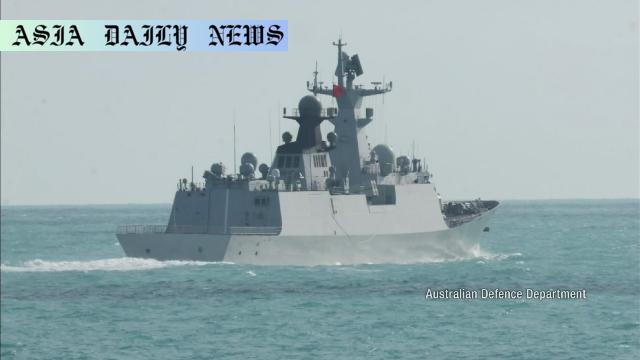Chinese naval drills disrupt flight routes between Australia and New Zealand, raising concerns over limited notice to airlines.
Chinese naval drills in international waters disrupt flights.
Australian officials say warnings lacked adequate notice.
China defends drills as following international law and practice.
Concerns raised over aircraft safety and unusual naval movement.

Introduction: The Disruption of Flight Routes
Recent Chinese naval drills in international waters between Australia and New Zealand have caused significant disruptions to commercial air traffic. The live-fire exercises were announced on short notice by Chinese authorities, forcing airlines like Emirates and Qantas to reroute their flights to avoid potential risks. While military exercises on international waters are not illegal, the sudden nature of the announcement raised concerns from Australian defense officials.
Australia’s Response and Concerns
Australian Defense Minister Richard Marles publicly addressed the issue, emphasizing that adequate notice is usually given for such activities to allow sufficient time for airlines to adjust flight paths. In this case, he noted that the lack of proper communication could have been unsettling for aircraft already mid-flight. Marles outlined that Australian military drills generally provide 12 to 24 hours of advance notice to ensure smooth planning and coordination.
China’s Position on the Naval Drills
A spokesperson from China’s foreign ministry defended the naval exercises, stating that the drills were conducted in a “safe, standard, and professional manner” and adhered to international laws and practices. However, Australian defense officials expressed concerns about China’s unusual military presence in the region, noting that it differs from established norms for such operations.
Implications for Commercial Airlines
Two major airlines, Emirates and Qantas, were notably affected by the drills, with reports confirming that they had to divert their flight paths. This adjustment created logistical challenges and potential stress for passengers and crew on board. The spontaneous announcement of live-fire exercises raises questions about communication practices and the balance between military training needs and civilian activity in shared spaces.
International Law and Safety Protocols
Although conducting military exercises in high seas does not breach international law, the incident highlights an essential discussion about best practices for notifying parties that may be impacted. Safety is a paramount concern, especially for commercial aircraft operating in busy airspaces. Aviation experts suggest that greater transparency and longer notification periods could help mitigate risks and maintain cooperative international relations.
Regional Geopolitical Context
This recent development comes amid broader concerns about China’s military ambitions and its expanding presence in strategically significant regions. As China continues to project its naval capabilities farther from its shorelines, neighboring countries like Australia are finding themselves increasingly impacted by Chinese activities. Such exercises, while legal, often fuel tensions and amplify calls for improved communication and regulatory measures to manage shared global spaces effectively.
Conclusion: Seeking A Balanced Approach
The incident serves as a timely reminder of the need for enhanced international collaboration, particularly when military maneuvers overlap with civilian activities. While China’s drills adhered to international law, their hasty communication underscores avoidable disruptions and safety concerns. With growing military activity in shared spaces around the globe, fostering trust through clear communication protocols remains essential for preserving safety and cooperation.



Commentary
Understanding the Disruption
The recent disruption caused by Chinese naval drills highlights an ongoing challenge in balancing military operations with civilian activities. While international waters permit such activities, the sudden nature of the announcement placed unnecessary stress on airlines and travelers. It’s crucial for all nations to maintain transparency in these situations to ensure safety and cooperation.
The Role of Communication
A key takeaway from this incident is the importance of communication. Clear and timely notification is not just a courtesy but a requirement when multiple parties share global resources such as airspace or maritime zones. As Australia rightly pointed out, providing even 12 to 24 hours of notice would have mitigated most of the risks and concerns associated with this incident.
A Broader Perspective
Looking at the larger picture, this event also reflects rising geopolitical complexities in the Asia-Pacific region. China’s naval expansion is undoubtedly reshaping power dynamics, which complicates the coordination of civilian and military activities. It’s essential for nations to work collaboratively on establishing rules and practices that account for evolving realities while prioritizing safety.